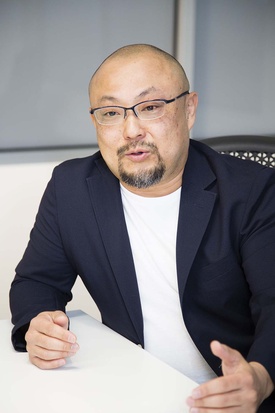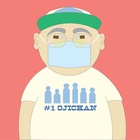I want Japan to notice me
Hiroaki Takamatsu is a development manager at Tableau Software, an IT company headquartered in the suburbs of Seattle, who also serves as an outside director for several other companies and has even published a book called "Rules for Raising Children at Global Standards." I've interviewed the multifaceted Takamatsu several times in the past and have been connected with him on Facebook. I think it was around mid-March that Takamatsu's posts started to focus on warning people in the U.S. about the new coronavirus and aimed at Japan. Before that, I remember there were a lot of photos of him giving talks in his hometown of Seattle and around Japan, or taking the controls of a small plane.
As everyone knows, Washington State, where Takamatsu lives, is where the first death from the new coronavirus in the United States was confirmed. Takamatsu continues to report on the local situation he feels firsthand, sometimes including links to data and news. I asked him in a phone interview what motivates him.
"Originally, what I was trying to say to Japan was simply that the Japanese people have a misunderstanding of what happiness is and have become slaves to money, and I wanted them to realize this. Putting work first has led to poor atmospheres at home, and when the coronavirus problem arose it became clear that no progress had been made in reforming working styles."
Viewing one's home country objectively
Takamatsu has always appealed to Japanese people to realize the true happiness that is right in front of them, and now that the current COVID-19 situation has made him so worried about the people of his home country, Japan, he has started to share information more frequently. However, there have been a variety of reactions from the Japanese side. Some have taken it at face value, while others have taken a negative stance, saying they don't want to be told this from the other side of the ocean, even though they don't currently live in Japan. Nevertheless, Takamatsu remains unfazed, with the sole belief that "if people in Japan don't feel a greater sense of crisis, things will get really bad."
"I think that people who react negatively have a loud voice, so their reaction stands out. Those who support and agree with me will directly message me or call me, rather than leaving a comment. What surprised me was that the people who reacted positively were actually younger than me, in their 20s and 30s. I think this gives hope for the future of Japan. I think that strengthening the influence of people with that kind of positive energy is a challenge for the future. For example, after reading my post, I received a counterargument saying, 'Your words are harsh, but they're hard on the ears (for Japanese people). It's not that we aren't doing anything to prevent COVID-19, there are many Japanese who are doing it quietly.' However, because they are doing it quietly, that doesn't get through to people, and it's not benefiting society. I would like those who are taking measures and taking action to have a stronger voice."
Takamatsu added, "Once Japanese people go abroad, they are able to see Japan objectively. And when they go to America or Europe, they come to understand that discussion is not about leaving grudges or taking the other person's opinion personally."
United States of the World, America
Takamatsu, who was a competitive skier in high school, had planned to enter a university in Japan on a sports recommendation. However, an injury caused that plan to disappear. He then considered studying abroad at a university overseas, and enrolled at a university in British Columbia, Canada. After graduating, he got a job at Lotus in Japan, and then moved to Microsoft Japan. He then served as a senior manager at the company's US headquarters, before joining Tableau Software in 2017.
Takamatsu, who has already acquired American citizenship, what would he answer if someone asked him, "Who are you?" "I'm a citizen of the world, born in Japan. That's the only way I can describe it. I realized this when I obtained American citizenship. At a celebration where people who had acquired American citizenship gathered together, then-President Obama sent me a message saying, 'This country, America, is a country for people who come together from all over the world. Now that you have become Americans, it's your turn to bring your siblings and their families here.' In other words, it hit home that America is the United States of the world."
Takamatsu, who said he was born in Japan and is a global citizen, was asked where he will be and what he will be doing in 10 years' time, when the coronavirus pandemic is expected to have subsided. "I would like to travel the world with my wife. My dream is to be able to share the things I see and experience with others as information, just like I do now. I even thought about getting a pilot's license to do that, so I would like to travel around the world with my wife by plane. If I felt like it, I could even travel around the world (laughs)."
When we spoke in mid-April, Washington state's stay-at-home order had not yet been lifted, along with other states, and had been in place for several weeks. "Being at home has allowed me to spend intimate time with my family. I couldn't be happier," she said without a trace of hesitation.
Hiroaki Takamatsu's official website: https://hiroakitakamatsu.com
© 2020 Keiko Fukuda







